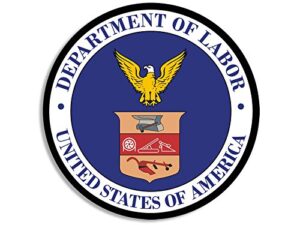U.S. Department of Labor Again Changes the Independent Contractor vs. Employee Analysis
January 30, 2024 by

Business owners regularly wrestle with whether to classify workers as employees or independent contractors. They must navigate not only state and IRS rules, but also those promulgated by the U.S. Department of Labor (DOL). Within those rules the challenges and ambiguities are many, and the potential consequences for misclassification are substantial.
Businesses must also adapt to these rules regularly changing, predictably swaying toward the interests of the White House administration in place. This latest change follows this pattern. Business owners who engage the work of independent contractors should pay close attention to the new rule going into effect on March 11, 2024, as the classification process will become more challenging.
2021 Rule:
In 2021, the DOL made it easier to evaluate worker classification and determine risk. That rule expressly adopted the long-standing economic realities test for evaluating independent contractor status under the Fair Labor Standards Act (FLSA), narrowing the focus of the economic realities inquiry to five factors, and assigning greater weight to two “core factors” within those five:
- The nature and degree of the worker’s control over the work.
- The extent the worker has an opportunity to earn profits or incur losses based on his or her exercise of initiative.
The 2021 rule stated that the two core factors “are the most probative as to whether or not an individual is an economically dependent ‘employee.’” The then-incoming Biden Administration attempted to sack this rule, but the rule later survived the effort through judicial intervention and remains in place today. That is, until the DOL’s latest change goes into effect on March 11, 2024.
2024 Rule Change
On January 10, 2024, the DOL published a revised rule, again applying the economic realities test, but abandoning the simplified two “core factors,” among other changes. The DOL is returning to a “totality-of-the-circumstances” approach, which applies six factors with no predetermined weight. Weight may be added to these factors based upon the specific facts and circumstances at issue. The changes also highlight that the “six factors are not exhaustive,” and other factors may be considered. One of the key inquiries for determining whether a worker is an employee has always been the degree of the employer’s control over the work, and the 2024 rule expressly specifies that the facts relevant to determine the employer’s control over the worker include whether the employer: (1) sets the worker’s schedule; (2) supervises the performance of the work; (3) explicitly limits the worker’s ability to work for others; (4) uses technological means of supervision (such as by means of a device or electronically); (5) reserves the right to supervise or discipline workers; or (6) places demands on workers’ time that do not allow them to work for others or work when they choose. Another significant change is that under the new rule, if the function the worker performs is an “integral part of the business” it will weigh in favor of the DOL considering the worker an employee. For example, if an employer is in the pet grooming business, the workers who actually perform the grooming are an integral part of the employer’s business and are likely employees.
A Note on DOL Authority
Regulations are not the same as laws. Laws enacted by Congress establish requirements or prohibitions. Regulations (or “rules”) are published by executive branch agencies (like the DOL) to clarify the agency’s interpretation of a law and how a law will be implemented by that agency. The rules may be given some deference by courts, but courts make the ultimate decision regarding interpretation of the law and may even strike down some rules.
Take Away for Business Owners
While the 2021 rule had its own challenges, the new 2024 approach introduces an unpredictable range of factors with no initial priority amongst them. Businesses will not know what weight a court will give to each of the six (or more) factors, adding a greater opportunity for subjectivity and lessening the chances for consistent outcomes. And as with the former version, the rule ambiguously allows for the consideration of other factors, if the factors in some way indicate whether the worker is in business for himself/herself, as opposed to being economically dependent on the potential employer for work.
As always, check applicable state rules on the independent contractor determination, as some states’ laws are stricter than federal law and should be followed in specific circumstances. Our employment lawyers stand ready to serve if you need further understanding on the new rule or how to address a specific worker classification issue or legal challenge.




